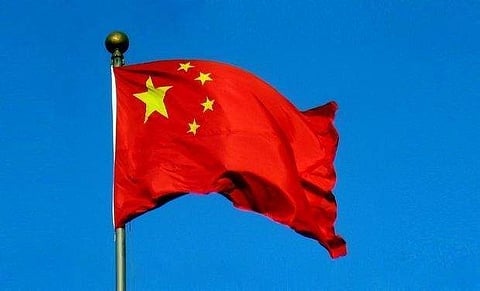

Last month, the presence of nearly 200 Chinese vessels in the waters of the Philippines Exclusive Economic Zone sent an obvious signal to the regional states of the ASEAN. China was watching the emerging shifts in the Indo-Pacific and its response was to flex its muscles. Reacting to the Chinese presence in the EEZ, President Duterte was quick to ensure that the Philippines Air Force responded to the incursion immediately. Describing the intrusion into its EEZ as a “threatening” one, the Philippines deployed its light fighter aircraft to ensure that the presence of huge numbers of Chinese vessels did not go unresponded to.
Understanding the duality of the Chinese position vis-a-vis the region of Southeast Asia is important; even as Beijing has contributed the maximum in terms of assistance during the pandemic, there has been increased incursions into the maritime spaces of other countries, pushing the boundaries of the bilateral ties with several of the claimant countries in the South China Sea dispute. The backdrop for this event is the emergence of two factors: first, the Biden administration has re-emphasised its Indo-Pacific policy, specifically with its treaty allies in Southeast Asia, of which the Philippines is critical. And the US has followed up with the Quad summit last month. Second, France and the UK are emerging as potential actors in the Indo-Pacific region, signalling the increasing approach to maintaining the regional and global normative order for the maritime domains.
The importance of the Indo-Pacific region for France is clearly indicated in the Ministry of Europe and Foreign Affairs website where it reiterates that its overseas territories in the Indo-Pacific are significant areas as they cover 93% of the country’s EEZ. Moreover, there is increasing recognition that France must be involved at various stages with all the regional initiatives that are emerging in the Indo-Pacific—supporting aspects of the Chinese BRI and the multilateral and minilateral approaches emerging in the region.
The second edition of the La Perouse naval exercise from April 5 to 7 was a first of its kind where the French navy will perform joint exercises with the members of the Quad—Australia, Japan, India and the US—in the waters of the Bay of Bengal to increase interoperability. This took place even as France, India and Australia have identified their priorities in maintaining the regional balance of power in the Indian Ocean with the reciprocal access agreement to each other’s military facilities in the region. In the week following the La Perouse naval exercises, the trilateral dialogue between the three is scheduled to take place on 13 April 2021, which will look at strengthening the core issues of maritime security and areas of collaboration. In light of the increasing Sino-US strategic rivalry, there are multiple layers of arrangements evolving in the regional security framework where this minilateral arrangement is emerging as a key option for India.
Earlier in March, the UK brought out its latest foreign policy paper that looks at an integrated approach for the nation to address issues of foreign, defence and security policy in the coming years. Even as the UK has exited the European Union, this policy paper is indicative of the shifts that are going to be relevant, highlighting the move away from a Euro-centric focus to one that is now transitioning with the realities of Brexit setting in. The report addresses the increasing “tilt” of the UK to a region that accounts for 17.5% of its global trade.
While the report significantly identifies the areas of security issues that range from territorial disputes to nuclear challenges, it also highlights issues such as climate change. But the emphasis on freedom of navigation cannot be missed, even as the report reiterates the commitment to regional security arrangements like the Five Power Defence Arrangement (FPDA), as well as supporting and working with multilateral partners that are like-minded. The increased focus on the Indo-Pacific is also seeing the deployment of the HMS Queen Elizabeth where it will participate in joint exercises, indicating the commitment to safeguarding the freedom of passage in the Indo-Pacific waters. This increased focus of the UK is also likely to translate into a dialogue partnership with the ASEAN, particularly focused on the importance of the ADMM-Plus, a defence ministers meeting to address regional security issues. The forthcoming visit of Prime Minister Boris Johnson to India later this month is also focused on exploring the strategic areas of furthering cooperation in the Indo-Pacific.
Even as more states are entering into the fray in what is being seen as the normative battle for the maritime zones and the safeguarding of the sea lines of communication, China’s assertions in these very waters is clearly sending the signal that it has scant regard for the existing rule of law. The latest intrusions into the EEZ of the Philippines clearly indicate Chinese revisionism is here to stay and will likely pressure smaller states in the region into accepting the regional status quo that will be driven by China. However, the entry of more states into the Indo-Pacific dynamic puts the onus on maintaining the normative order upon several players, making the regional landscape more dependent on a multipolar approach.
Shankari Sundararaman
Professor at School of International Studies, JNU, New Delhi
(shankari@mail.jnu.ac.in)